Team
Matthieu Domenech de Cellès - Research group leader
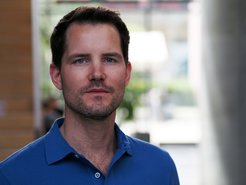
Trained in mathematical sciences (École Centrale Paris 2008), I obtained a PhD in biomathematics and biostatistics from the Pierre et Marie Curie (Paris 6) University in 2013 (host unit: Pharmaco Epidemiology of Infectious Diseases [PhEID], Institut Pasteur, Paris; PhD supervisor: Didier Guillemot). I then completed a post-doc at the University of Michigan (Department of Ecology and Evolutionary Biology), where I studied the epidemiology of pertussis and the causes of its resurgence in the US (PIs: Pejman Rohani and Aaron A. King). In September 2015, I started a new post-doctoral project to elucidate the epidemiological interactions between influenza viruses and pneumococcus and, more generally, the mechanisms underlying the strong seasonality of pneumococcal diseases (PI: Lulla Opatowski). These research experiences paved the way for the creation of my lab (in January 2020) and its current research topics: vaccine epidemiology, infectious disease seasonality, and pathogen interactions.
Michael Briga – Postdoc

I did my PhD in evolutionary medicine at the University of Groningen in the Netherlands, where I worked on the long-term effects of developmental conditions on ageing and lifespan in birds. I then moved to the University of Turku in Finland for a post-doc on the epidemiology of childhood infections in historical populations. In 2021, I joined the Domenech de Cellès lab, where I work on the epidemiological consequences of maternal immunization against pertussis and the blunting of infant vaccination.
Sarah Kramer – Postdoc
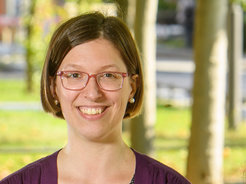
I obtained my Bachelor’s in Biology of Global Health from Georgetown University, and my PhD in Environmental Health Sciences from Columbia University’s Mailman School of Public Health. My dissertation work involved using mathematical models to generate forecasts of influenza activity in temperate and tropical regions. Currently, my work focuses on better understanding interactions between respiratory viruses, in particular influenza and respiratory syncytial virus (RSV), and on assessing the role of seasonality on vaccine immunogenicity in young children.
Sarah Pirikahu – Postdoc
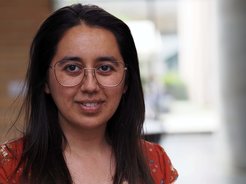
I obtained my PhD in Statistics at Massey University in New Zealand, where I developed Bayesian methodology to estimate population attributable measures and their uncertainty. During my PhD I was concurrently employed as a Statistician at the Institute of Environmental Science and Research where I worked on projects to help ensure food and water safety in New Zealand. I was a Postdoctoral Researcher in the Genetics and Epidemiology group at the University of Western Australia, where I explored the clinical use of risk factors for breast cancer, such as breast density, to help improve breast cancer outcomes through early diagnosis. My research interests lie in using mathematical and statistical methods to help better understand public health problems. I joined the Domenech de Cellès Lab in 2022 and am currently focused on developing models to describe the interactions between respiratory viruses.
Laura Barrero-Guevara – PhD student

I studied Biology and Microbiology at Universidad de Los Andes in my home country, Colombia. During my undergraduate studies, I worked on understanding the impact of climate on secreted antimicrobial peptides and how those peptides immunomodulated the response against multiresistant bacteria. Then, thanks to a DAAD grant, I came to Germany to learn about immunomodulation on tuberculosis infection in FAU, Erlangen. Although I was very interested in the mechanisms of infection at the individual level, I knew I wanted to
understand the dynamics at the population level. This curiosity led me to start my PhD with Matthieu at the MPIIB, under the Health Data Science Program of Charité. My current project focuses on understanding the seasonality drivers of infectious diseases. We consider drivers such as a seasonal climate (even in tropical countries), a seasonal immune system (in response to vaccines), or seasonal contacts (perhaps between species). I also love data visualization, and time series are great for plotting!
Pietro Gemo – PhD student
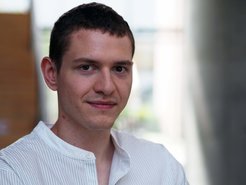
When I acquired my BSc in Molecular Biology I felt the need to achieve a stronger mathematico-physical knowledge on living matter in order to better tackle the complex biomedical questions we face nowaday. For the thesis of my MSc in Quantitative Biology I contributed to the development of a mathematical model on the interaction of replication and transcriptional regulation in bacteria. I joined the Domenech de Cellès Lab in 2023 to start my PhD investigating the impact of climatic variables on the seasonal dynamics of respiratory viruses like flu, RSV and rhinoviruses, which collectively cause large morbidity worldwide.
Elizabeth Goult – PhD student

I completed my Bachelor’s in Mathematics at the University of Plymouth, UK. During my Bachelor's I carried out an internship at Plymouth Marine Laboratory, which introduced me to using mathematical modelling to understand biological systems. I studied my Masters degree in Mathematical Modelling at University College London, where my master’s project focused on modelling the impact of humidity on influenza incidence in a rural and urban setting. I joined the Domenech de Celles lab in 2020 to start my PhD, where I am using mathematical models to calculate how to most effectively use vaccines, particularly in childhood infections.
Cana Kußmaul – PhD Student
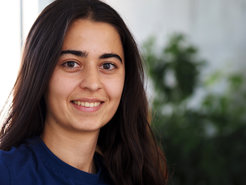
I obtained my Bachelor’s degree in Psychology, Philosophy and Linguistics from the University of Oxford and went on to do an MSc in Public Health at the London School of Hygiene and Tropical Medicine. During this time, I developed a strong interest in quantitative methods and epidemiology and used mixed effects models to identify determinants of urban climate action for my master’s project. I then worked at the Robert Koch Institute, mainly on the analysis of COVID-19 seroepidemiological data, for two years, before joining the Domenech de Celles lab and the Health Data Science PhD Program at Charité in 2023. For my PhD, I am investigating statistical methods for assessing the link between climate and infectious disease and am using mathematical and statistical models to identify drivers of the seasonality of invasive meningococcal disease in different climates.
Anabelle Wong – PhD student

Having worked as a hospital pharmacist in Hong Kong and participated in humanitarian projects in the Central African Republic and in South Sudan, I have developed a strong interest in the prevention and treatment of infectious diseases. As part of the Double Master’s degrees in Public Health (Epidemiology and Advanced Biostatistics) at the University of Sheffield and École des Hautes Études en Santé Publique, I did my thesis on pertussis vaccination policy at Institut Pasteur, Paris. This experience has confirmed my interest in population health research and led me to join the Domenech Lab and to pursue a PhD in Health Data Sciences at Charité – Universitätsmedizin Berlin. My current work focuses on the epidemiology of pneumococcal diseases and the impacts of pneumococcal conjugate vaccines (PCV).








